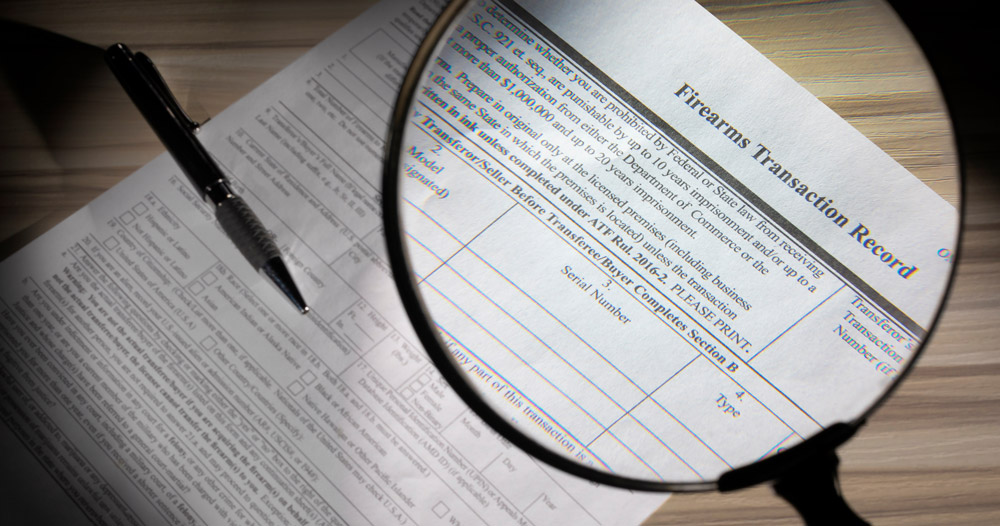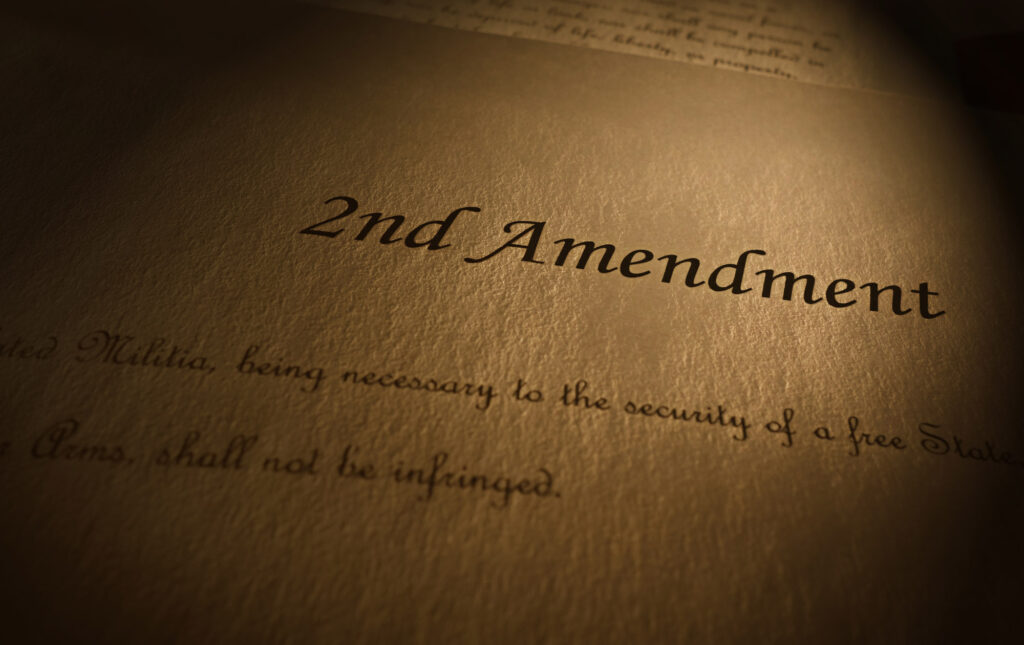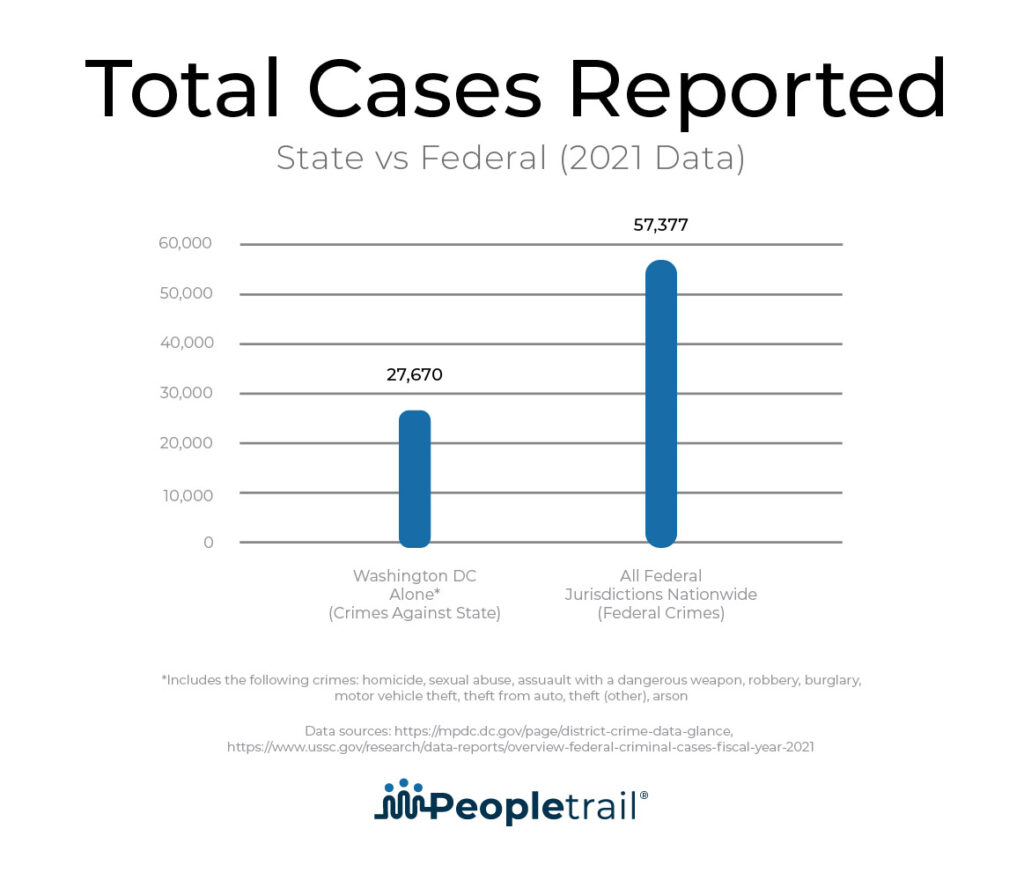Let’s take a moment to address a difficult subject.
From January through June 2022, at least 314 mass shootings had been reported in the U.S.— a number that can’t be understated. Each of those 314 occasions surely inspired heartbreak of the highest magnitude as well as debilitating, lifelong trauma. Those of us who remain unaffected by such needless tragedies should be grateful, striving to consider them as if we have, in fact, been directly affected.
It’s all too true that lightning seems more threatening to those it has struck even though it’s equally lethal to everyone.
Identifying The Most Important Variables
Before walking closer towards the center of the lively gun control battleground, let’s make clear that the present objective is not to speak about gun control. The objective is to discuss people regulation as it relates to the purchase of firearms.
There are two general schools of thought on the matter of gun violence, both with compelling foundational support.
Some people tend to have a more Lord of the Rings perspective on things. It was the ring that corrupted Smeagol and created Gollum. The ring encouraged ill-will. The ring made a monster of an otherwise decently-behaved Hobbit.
Then there is the other point of view— let’s say a more Harry Potter perspective.
It was Voldemort that harbored evil, not his wand. The wand simply gave him added power to carry out his unscrupulous designs.
Now, gun control efforts attempt to address the Gollum issue where the gun itself is seen as the primary source of risk. This article has an interest in addressing, for lack of a better name, the Voldemort issue. In other words, how can we better keep dangerous people from legally accessing guns? Are we currently doing an adequate job of achieving this?
Spoiler: the answer is no.
In order to substantiate this claim, we’ll need to take a closer look at how we are currently screening gun buyers. It will become clear that there is room for improvement.
Rights and Regulations: A History With an Important Message
By now, most all of us are at least loosely familiar with the second amendment which reads:
“A well regulated Militia, being necessary to the security of a free State, the right of the people to keep and bear Arms, shall not be infringed.”
Yes, that is the entire second amendment, word-for-word.
You may notice that this often-referenced amendment is rather brief and undetailed. There is no context provided concerning firearms types and use cases aside from the right to access firepower when a well-regulated militia is formed. Thus, there have been some laws passed in more recent years aimed to protect the general public from unnecessary use of force by everyday citizens. These laws also set the framework for our current firearms buyer screening process. It’s important to know the legal foundations of our nation’s current screening practices in order to make determinations of their stability. Let’s take a quick look at the two most applicable laws:
Gun Control Act (GCA) of 1968
Many of us don’t vividly recall, but the 1960s saw some pretty high-profile assassinations.
Following the assassination of Dr. Martin Luther King Jr. and Senator Robert Kennedy, a few more regulations were added to the list.
Simply put, the GCA works to keep firearms out of the hands of those not legally entitled to possess them. Disqualifying factors include age, criminal background, or incompetency. Generally, the GCA regulates who sells, purchases, and possesses firearms.
Part of this far-reaching act of congress deals with the “seller side” of a firearms transaction, setting forth and enforcing the criteria for obtaining a Federal Firearm License (FLL).
The other component seeks to resolve the issue we are presently concerned with— keeping guns away from dangerous people. According to the actual text of the bill, the following are not authorized to purchase a firearm:
- Convicted felons
- Fugitives from justice
- Unlawful users of controlled substances
- Mentally-unfit persons
- Unlawfully-present individuals
- Persons who have been dishonorably discharged from the military
- Persons who have renounced their U.S. citizenship
- Persons subject to a court order (preventing them from harassing, stalking, etc.)
- Persons convicted of a misdemeanor domestic violence crime
It’s worth mentioning that there is much, much more to this act. For our purposes, we will leave it at that.
Brady Handgun Violence Act (Brady Act) of 1993
This legislation is fairly straightforward. The Brady Act mandates federal background checks on firearm purchasers and also imposes a five-day waiting period on firearm transactions.
As part of this act, the attorney general was required (within five years of enactment) to establish a national instant background check system. The worthiness of a purchaser is almost entirely dependent on the reliability of this system.
This system, launched by the FBI in 1998 now exists as the National Instant Criminal Background Check System (NICS). Every legal purchase of a firearm requires a completed background check sourced from this system.
Now, given all that hinges on this system, we should be asking a couple of important questions:
- How accurate and comprehensive is this NCIS database?
- Is it the best available option?
A Potentially Misguided Notion: FBI Means Better Background Screening?
When it comes to obtaining background check data, there seems to be a certain allure to the public sector, namely the FBI. Due to its worldwide reputation (rightfully earned) as a revered intelligence-driven national security organization, the FBI would seem to be an obvious top performer as a background screening provider.
Given the exclusion criteria outlined in the Gun Control Act and a bit of screening industry expertise, we can begin to make determinations about whether or not the NICS covers the necessary bases.
What Information Does the NICS Provide?
Here are some NICS highlights provided by the FBI:
- The majority of records needed by the NICS are available within the III or NCIC databases
- States are largely responsible for reporting records to the FBI databases
- In 2016, the NICS processed over 27.5 million transactions
- Over 90 percent of these transactions are “immediate determination,” meaning no additional investigative action is taken
- Over 70 percent result in no descriptive matches or hits
As with most other criminal databases, the submission of pertinent records to NICS indices is not guaranteed. Because of this, the NICS has a team who implements outreach and education initiatives with a number of agencies worldwide. These efforts are geared toward increasing the diligence with which agencies report to key FBI databases. The problem with this is that the federal government cannot require states to report their information to the NCIS.
The 10th Amendment Conflict
Many of us fail to realize that the power given to the states makes it quite difficult for the federal government to effectively regulate the adequacy of their criminal databases. The 10th Amendment reads:
“The powers not delegated to the United States by the Constitution, nor prohibited by it to the States, are reserved to the States respectively, or to the people.”
In the United States, we have federal laws and state laws. Breaches of federal law are often processed in federal courthouses while breaches of state law are processed in state (or county) courthouses. The due process of crimes committed against the state fall into the “powers not delegated to the United States…” category established by the 10th Amendment.
Unfortunately for the pursuit of federal background check data integrity, the overwhelming majority of crimes are processed by the states.
In short, the states are usually under no obligation to report their business to the federal government when it comes to criminal records data. Therefore, the federal government can’t make mandates to ensure the accuracy of their criminal records information.
According to the FBI:
“As of October 31, 2020, 43 states were NIBRS-certified, i.e., the states have records management systems that meet the FBI’s requirements for collecting crime data according to established technical specifications.”
This is all well and good…but 43 is only 86 percent of the states. Having fair confidence in only 86 percent of the data is not sufficient when it comes to screening gun buyers— a small fraction of whom have proven to be domestic terrorists over the years. 14 percent is a large hole.
Patches Needed
Like a net, NICS databases capture large amounts of general stuff— but also like nets, these databases have lots of holes. The truth is, not all existing records are available within the commonly-used NICS databases.
Questionable data integrity would not be a large issue if other failsafes were in place…
- Are records (or absence thereof) verified directly with the courts?
- What investigative efforts are employed to verify the mental fitness of a gun buyer? A criminal database won’t likely provide that information.
- What drug testing processes have been implemented at the federal level to better detect potential drug abuse problems? A database is not helpful in determining whether or not an individual has recently been abusing drugs.
- Etc.
To speak plainly, the answer is that most of these things are not currently being handled. The overall worthiness of a gun buyer is primarily determined by an objectively inadequate database.
The FBI mentions a 90 percent “immediate determination” rate. Is this a good thing? Is it worth spending an extra day or two in order to button things up a bit better? Gun buyers already have to wait five days anyway.
Evidence of Inadequacy
Former FBI Director James Comey has gone on record mentioning lapses in the FBI background check system.
Following the infamous church shooting in Charleston on June 17, 2015, the FBI found that American white supremacist and domestic terrorist Dylann Roof should never have passed his background check.
The perpetrator later admitted that he was in possession of certain medication without a prescription— a thing that should have disqualified him from all firearms purchases under the GCA. A simple MRO-verified drug test could have prevented him from legally obtaining the firearm he used to take the lives of 9 people.
In another instance, Devin Patrick Kelley killed 26 people (including an unborn child) as well as himself in the Sutherland Springs Church mass shooting.
It was later found that the perpetrator should have been legally barred from owning guns. Previous domestic violence cases were not reported to the NICS by the U.S. Air Force (the agency that convened his court-martial). These cases involved abuse of his then-wife and a fracture to his baby stepson’s skull. Again, Kelley should have not been able to purchase a firearm per the GCA. A court-verified background check would have likely found these records before the purchase was allowed.
In summation, many FBI background check holes have been publicly identified, but only after massacres had occurred.
The Private Sector Has Access to Actionable Data and Considerable Expertise
Private CRAs, specifically background screening companies, have been trusted by both domestic and global organizations for decades to provide background checks on new hires, tenants, volunteers, etc. While many government agencies stick with the FBI fingerprint/NICS process, given the choice, most companies elect to partner with a private background screening vendor.
Why is this?
To be completely frank, answers such as faster, more accurate, more comprehensive, and more customizable come to mind. It’s a simple and verifiable truth that many private screening companies have the capacity and resources to carry out effective background checks on gun buyers.
Verifying Information at the Court Level
While the FBI has access to database information, so do private screening companies. In fact, private screeners search the following and more in one instant database search:
- Federal fugitive files
- State and county record repositories
- Prison parole and release files
- Sex offender records
- Foreign Nationals Database (OFAC)
- National Security/Terrorist Watchlist Database
- FBI most wanted
- Interpol most wanted
- DEA fugitives list
But remember databases are not always sufficient as stand-alone searches. As we have mentioned before, some states are more concerned with reporting their information to these databases than others, and no one institution has any control over this.
Private screening companies are regulated by the Fair Credit Reporting Act, requiring them to verify potentially adverse information directly at the source (the jurisdiction or courthouse where the crime was committed and recorded). Furthermore, many common screening packages for employment include county court records searches in addition to database searches. These searches hand-pull records from the courthouses and significantly help to patch holes in the national criminal database net.
It’s recommended that for each background check, a 7-year history of county criminal records searches (where an individual has lived/worked or gone to school) are ordered. Private screening companies receive these records directly from the courts, often within a single business day. These searches are essentially hole-less. FBI background checks don’t gather information directly from the courts.
What About Illegal Substance Abuse Detection?
Since the GCA prohibits unlawful drug users from obtaining a firearm, drug screening on gun buyers would seem to be a necessary practice, would it not? What other way could illegal drug use be regulated in the context of a firearm purchase?
Many private screeners have the infrastructure to facilitate drug testing for very large volumes of individuals all across the country. They are experts in doing so and can often provide results in as little as one business day. The FBI does not have the capability to accomplish this in any reasonable amount of time or at an appropriate cost.
Reference Checks Can Also Tell a Story
Conducting reference checks could greatly benefit the gun buyer screening process. References often provide deeper insights into an individual’s character that otherwise would be difficult or impossible to gather. This is another capability that the FBI simply doesn’t have at scale.
Name-Based Searches Are Very Effective (Arguably More So)
Now for another private sector benefit…no fingerprinting necessary.
Personal information such as name, date of birth, social security number, and address history is more than sufficient to accurately identify an individual. Even a John Smith born on the most popular day of the year who uses a plethora of aliases can be singled out by a criminal researcher with relative ease. Gone are the days when fingerprints significantly benefited the background screening process. They are messy, inconvenient, and unnecessary.
Moreover, name-based searches allow for the detection of potential fraud. Fingerprints will not productively convey information about the unauthorized use of one’s personal identifier information.
In summation, private background screening companies (speaking generally) have arguably more industry knowledge, resources, capacity, and solutions than the FBI when it comes to adequate background checks.
What Aspects of Firearm Acquisition Can We Control?
At the end of the day, there are things within our control and things outside of our control when it comes to preventing tragedy— specifically gun-related tragedy.
Whether or not Voldemort should be found fit to carry his wand is certainly something within the control of the wand regulation committee; it’s just a matter of utilizing the appropriate resources.
Should the FBI be the institution tasked with screening gun buyers? Perhaps a more useful question would be, is the FBI the best available background screening provider?
The short and simple answer to the latter is, no.
Reviewing the firearm purchaser disqualification criteria as detailed in the GCA, we realize the FBI is leaving many things to be desired. This is not to say the FBI is intentionally doing less than they should or they are malicious in their neglect. The FBI was assigned this responsibility and has put considerable effort into meeting expectations. Even still, that does not mean it’s the best option.
Now, given all the information that has been presented, it’s time for two final important questions:
Should we reconsider current firearm purchaser screening processes as presently constituted? Could such a thing reduce the number of needless gun-related deaths in our country?
It would certainly seem that way.
For more background screening insights, visit us online at https://peopletrail.com/.















